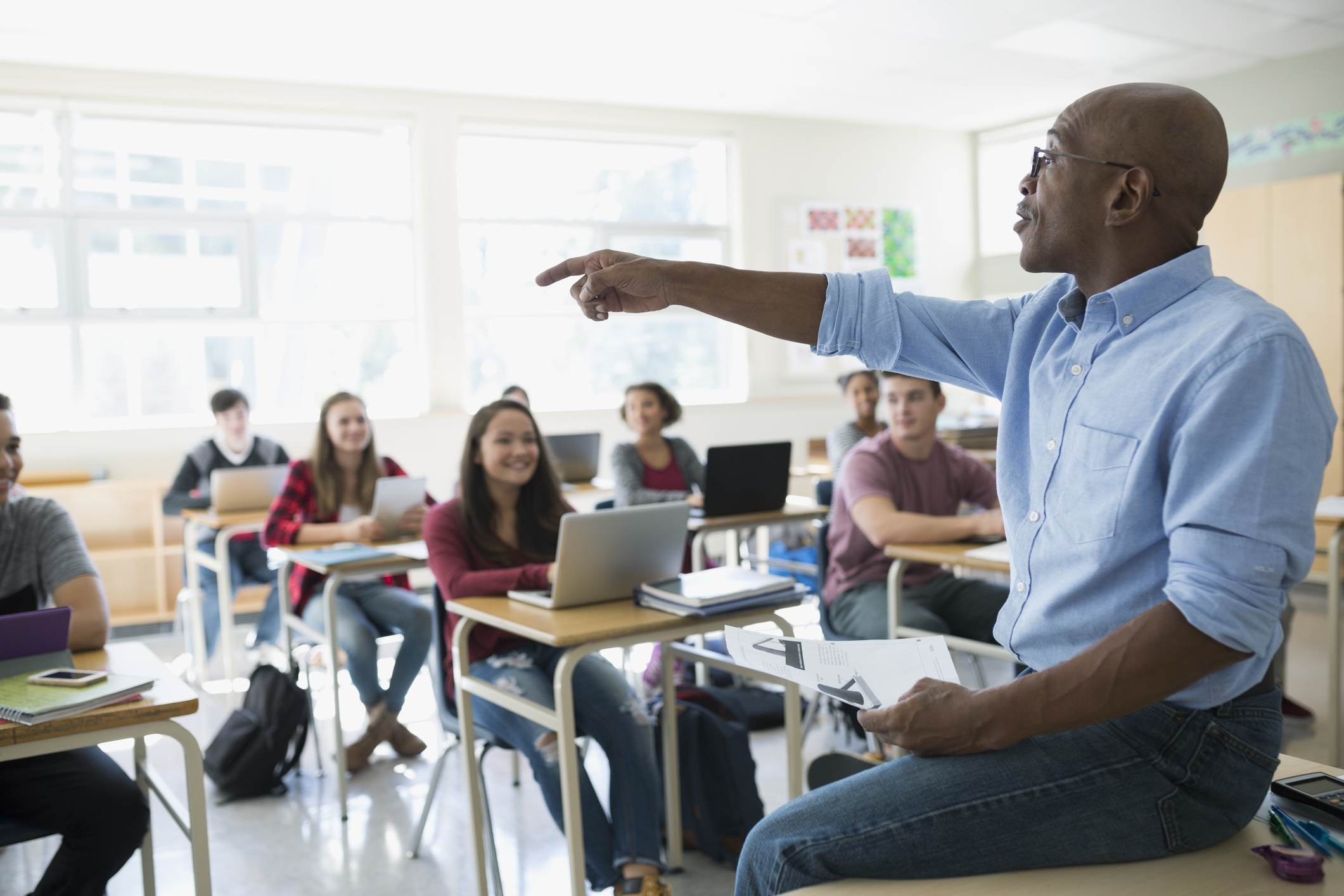Unlock Your Child’s Potential with Primary Science Tuition Singapore
Unlock Your Child’s Potential with Primary Science Tuition Singapore
Blog Article
Discover the Vital Benefits of Recognizing Primary Scientific Research for Young Learners
The value of main scientific research education and learning for young learners prolongs far beyond plain expertise procurement; it offers as a basic column in establishing essential skills such as crucial thinking, analytical, and creative thinking. Involving with scientific principles via interactive and inquiry-based tasks not only grows inquisitiveness however also lays the groundwork for durable, positive learners.
Enhancing Critical Thinking Abilities
Cultivating essential assuming skills in young learners is important for their cognitive growth and future scholastic success. Crucial reasoning enables youngsters to analyze information, evaluate evidence, and make educated decisions, which are essential abilities in today's information-rich society. By taking part in scientific questions, young learners can enhance these abilities as they discover concepts via experimentation, reasoning, and monitoring.
In main scientific research education and learning, educators can assist in crucial thinking by encouraging trainees to ask inquiries, formulate hypotheses, and conduct experiments. This hands-on technique allows children to practice analytical and establish sensible reasoning skills. For instance, when trainees explore the properties of materials or the concepts of activity, they learn to examine their searchings for critically and attract conclusions based upon proof.
In addition, discussions and collective jobs can advertise critical reasoning by giving opportunities for learners to verbalize their thoughts, difficulty presumptions, and take into consideration diverse point of views. By producing an encouraging atmosphere that values questions and representation, teachers can nurture critical thinking skills that encourage young learners to become independent thinkers and lifelong learners. Eventually, enhancing these skills lays a robust structure for their future scholastic endeavors and personal development.
Cultivating Inquisitiveness and Exploration

Main science education gives a structured setting where young students can explore numerous sensations through hands-on experiments and monitorings. By allowing them to connect with materials and involve in inquiry-based knowing, educators create possibilities for children to create theories, check their ideas, and reason. Such experiences nurture a sense of marvel and exhilaration about scientific research.

Structure Confidence in Issue Resolving
Structure self-confidence in analytic is an essential part of main science education and learning that encourages young learners to come close to obstacles with durability and creative thinking - primary science tuition Singapore. They create vital skills in essential thinking and analysis when youngsters are urged to involve with clinical ideas through hands-on activities and inquiry-based learning. This procedure not only boosts their understanding of clinical principles yet likewise cultivates a sense of possession over their discovering
To build self-confidence, teachers should develop an encouraging atmosphere where errors are considered as chances for development as opposed to failures. This urges students to take threats and explore numerous services to issues. By providing scaffolding and support, teachers can assist pupils navigate intricate tasks, progressively enhancing their freedom in problem-solving circumstances.
Additionally, collective discovering experiences, such as team jobs or experiments, can additionally enhance students' confidence as they learn to articulate their thoughts and listen to others' perspectives. These interactions nurture social abilities and reinforce the idea that analytical is often a cumulative undertaking. Ultimately, cultivating confidence in analytical prepares young students for future scholastic challenges and equips them with the devices required for long-lasting learning.
Encouraging Creativity and Development
In the world of primary science education, motivating imagination and development is necessary for growing a dynamic learning setting. By cultivating a society where young students can check out ideas and experiment openly, educators aid pupils create essential assuming skills and an enthusiasm for exploration. Creative thinking in scientific research encourages kids to ask inquiries, develop theories, and engage in hands-on tasks that promote their imagination.
Incorporating flexible projects and inquiry-based learning right into the curriculum enables pupils to express their unique point of views and solutions. When charged with addressing a problem associated to their atmosphere, pupils can visit this site brainstorm multiple techniques, leading to creative end results that showcase their originality. This not only strengthens their understanding of clinical principles but likewise infuses a feeling of ownership over their discovering procedure.
In addition, creative science education and learning supports collaboration among peers, as trainees often share concepts and improve one an additional's insights - primary science tuition Singapore. This collective spirit advertises not just innovation but also necessary social skills. Hence, by focusing on creativity and advancement in key science education and learning, we empower young students to assume critically, embrace difficulties, and visualize possibilities, laying a strong foundation for lifelong understanding and expedition
Planning For Future Understanding Obstacles
Young students' capacity to browse future knowing challenges rests on a strong foundation in primary scientific research education and learning. This fundamental understanding equips students with critical assuming skills and an organized technique to analytical, important for taking on complicated issues in an ever-evolving globe. Primary scientific research promotes inquiry-based understanding, motivating students to ask concerns, explore hypotheses, and participate in hands-on experiments.
As they establish these abilities, learners come to be proficient at assessing data, identifying patterns, and drawing notified conclusions. Such proficiencies are essential not only in clinical fields however additionally in math, engineering, and innovation (STEM), where interdisciplinary expertise is increasingly important.
In addition, primary science education and learning grows a feeling of curiosity and resilience in young learners, enabling them to check out obstacles as possibilities for growth. As they encounter and conquer challenges in their clinical expeditions, they construct self-confidence in their capacity to adjust and introduce.
Inevitably, a solid structure in primary science not only prepares young learners for academic pursuits but also furnishes them with the tools required for lifelong discovering and flexibility in a swiftly changing global landscape. By investing in primary science education, we are buying the future capacity of our learners.
Conclusion
Comprehending main science is important for young students, as it cultivates critical reasoning, inquisitiveness, and imagination. Engaging with scientific ideas via hands-on experiments enhances Continued problem-solving abilities and builds resilience. This foundational expertise not only furnishes trainees to examine data and identify patterns however also supports an inquiry-based attitude. Ultimately, the advantages of main science education and learning prepare kids for future scholastic quests and instill long-lasting learning behaviors vital for thriving in an ever-evolving globe.
The importance of main scientific research education for young learners prolongs much past mere understanding procurement; it serves as a fundamental pillar in establishing essential skills such as important reasoning, analytic, and creativity. By producing a a knockout post helpful setting that values inquiry and reflection, teachers can nurture essential thinking abilities that empower young learners to become lifelong students and independent thinkers. Therefore, by focusing on creative thinking and development in main scientific research education, we equip young learners to believe seriously, welcome difficulties, and envision possibilities, laying a strong structure for long-lasting understanding and expedition.
Young students' capability to navigate future knowing challenges hinges on a strong structure in main science education.Understanding key scientific research is vital for young students, as it promotes crucial thinking, inquisitiveness, and creative thinking.
Report this page